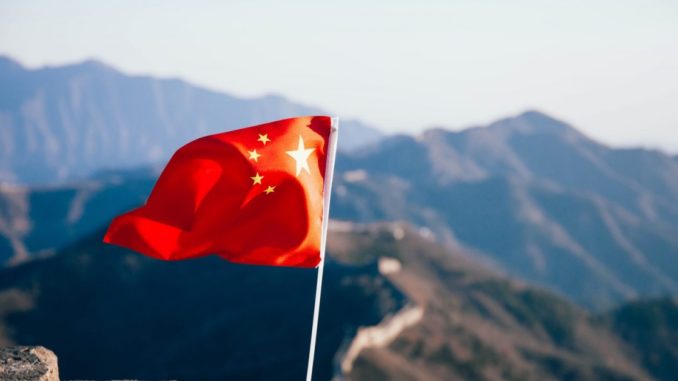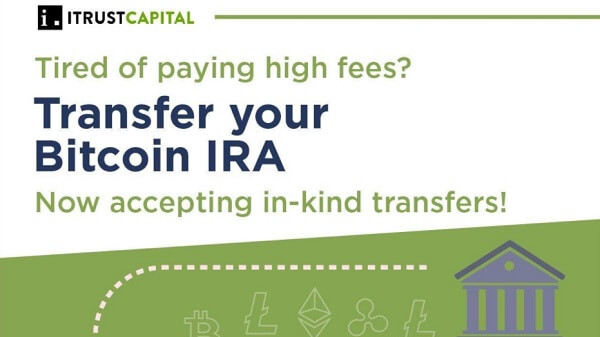
“In the event that they do one thing incorrect we are able to delete the entire chain.”
That is how Yifan He, the CEO of Red Date, the corporate behind China’s Blockchain-Based mostly Service Community (BSN), describes the extent of presidency management within the system.
BSN is the government-blessed framework being developed in China for blockchain builders. The community can already help decentralized functions (dapps) or instruments constructed on 15 public blockchains. Purple Date claims that it provides builders entry to blockchains, each inside and out of doors China, at a less expensive worth.
This all matches into a bigger sample. China is cautious of cryptocurrency however has embraced blockchain expertise, so long as it may be managed. The nation is actively pursuing international supremacy in blockchain and crypto, and that work has two prongs: the digital yuan, or DCEP, China’s central financial institution digital forex, and BSN, a framework for constructing enterprise blockchain merchandise.
However China’s method differs from the unique idea of a blockchain as a system that’s speculated to be immutable and immune to authorities interference.
The BSN-base enterprise blockchain methods have been deployed by the cities of Hangzhou, Xiong’an, Changsha and the Hainan Province, in line with Purple Date’s worldwide enterprise improvement supervisor, Erika Lou.
A number of provinces are planning to hitch BSN this 12 months, she added. Some overseas governments in Asia, Europe, Turkey and North Africa have additionally expressed curiosity.
Learn additionally: China Aims to Be the World’s Dominant Blockchain Power – With Help From Google, Amazon and Microsoft – CoinDesk
Two methods
BSN was based by Chinese language state-owned telecom big China Mobile, UnionPay and IT startup Purple Date.
It provides builders two variations: service for builders exterior of China and one for customers contained in the nation. These companies supply two completely different units of blockchain choices and are bodily separate. The worldwide service is run from Amazon Internet Companies knowledge facilities in Hong Kong, California and Paris, whereas the nationwide one solely runs in knowledge facilities inside China, mentioned He.
The worldwide service now contains 15 public blockchains, with a plan so as to add 30 extra later this 12 months. They’re Ethereum, EOS, Tezos, Neo, Solana, Polkadot, Casper, Nervos, IRISnet (a permissioned fork of Cosmos created by Tendermint and Chinese language firm Bianji), Algorand, ShareRing, Oasis, Bityuan, Close to and Findora.
Learn additionally: China’s Blockchain Infrastructure Goes Global – CoinDesk
Each native and international devs may even be provided Baidu’s Xuperchain, Fisco (a blockchain product by the Chinese language financial institution WeBank based by Tencent), in addition to variations of Hyperledger and Quorum.
So why would builders use such a closely managed blockchain when there are decentralized choices accessible? It could come all the way down to price. For builders, utilizing BSN is cheaper than paying for cloud companies by a standard supplier, He mentioned. He famous that devs will nonetheless get the expertise that public blockchains present, simply in a forked, permissioned method.
Make it permissioned
If a blockchain permits good contracts, like Ethereum and lots of different chains that had been created after Bitcoin, there’s a chance folks can put up content material onto the community that might upset the Chinese government. To keep away from that, enterprise blockchain methods in China should be managed by the authorities, He mentioned. That is the place the so-called Open Permissioned service comes into play.
The service, created as a hybrid of permissioned and permissionless approaches particularly for the builders inside China, now contains IRISnet, the permissioned fork of Cosmos; Fisco and a model of Free TON, the proof-of-stake blockchain utilizing the code Telegram wrote for its TON challenge however by no means launched it attributable to a regulatory battle with the U.S. Securities and Alternate Fee.
Purple Date can also be planning so as to add Waves, a blockchain created by a Russian crew, the enterprise model of which has been utilized in among the government blockchain projects in Russia.
One other future addition is a permissioned model of Ethereum. In response to He, a three way partnership of “a widely known VC and a widely known developer in Hong Kong” is at present engaged on it. He declined to disclose the names.
Learn additionally: China’s BSN to ‘Localize’ 24 Public Blockchains by Making Them Permissioned
The forks of those chains for the BSN permit Purple Date to censor sure good contracts in the event that they upset the regulator, or delete your complete blockchain, He mentioned: “In the event that they do one thing incorrect, the regulator says that there’s one thing incorrect, we are able to click on a button and delete the entire chain.”
All Open Permissioned customers additionally should undergo a know-your-customer, or KYC, course of, so their identities are seen to the BSN operator always. He added: “In the event you do one thing incorrect, we all know who you might be.”
No crypto allowed
One other distinct function of the nationwide blockchain service to be used inside China is that it could possibly’t function with a cryptocurrency. Which means that when customers have to pay transaction charges, they need to pay them in fiat, not blockchain tokens.
“To pay fuel, they should go to a [dedicated] portal, enter their wallets and use actual cash to fill the pockets. You need to use WeChat, AliPay, UnionPay in China to pay,” He mentioned. “We principally hyperlink the normal cost system with the general public chain infrastructure.”
Transaction charges are primarily gathered by the BSN operator, after which it sends a part of it to a companion, says Pavel Prigolovko, chief technique officer of TON Labs, the corporate that helped Purple Date combine Free TON.
TON Labs had been an unofficial companion of Telegram when it was creating the TON cryptocurrency. After Telegram shelved TON because of the struggle with the SEC on the token’s authorized standing, TON Labs launched the community along with a bunch {of professional} validators.
To combine Free TON into BSN, TON Labs’ crew needed to create instruments for preliminary evaluation of good contracts earlier than they get deployed, in addition to for monitoring good contracts’ exercise within the community, Prigolovko advised CoinDesk.
To maintain the system compliant with Chinese language regulation, it’s essential to be sure that customers can’t ship one another tokens. To make sure BSN operators can block non-compliant good contracts, “every good contract should have a code in-built, so the BSN can cease it with its key,” Prigolovko mentioned.
Limitations apart, China is a giant marketplace for enterprise blockchain options and Free TON expertise can get an adoption increase out of it, believes TON Labs co-founder Alexander Filatov.
Learn additionally: Ethereum-Based ConsenSys Quorum Partners With China’s BSN Blockchain
“Out of massive international locations, China is the most probably one to have explosive blockchain adoption,” Filatov advised CoinDesk.
For GoQuorum, the BSN-adapted model of Quorum by ConsenSys, the issue of fuel doesn’t exist as a result of this model makes use of the Proof of Authority consensus mechanism, mentioned Charles d’Haussy, ConsenSys managing director for the Asia Pacific area.
He additionally mentioned ConsenSys didn’t need to construct extra management instruments for BSN because the expertise already has all of the wanted performance: “The maturity of our GoQuorum stack permits enterprises a excessive granularity of configuration to suit with their enterprise and native necessities.”
D’Haussy praised the extent of curiosity for the blockchain tech in China, saying:
“Chinese language builders are extraordinarily engaged and pull from us numerous content material and coaching which our APAC groups are busy localizing.”




 Bitcoin
Bitcoin  Ethereum
Ethereum  Tether
Tether  XRP
XRP  USDC
USDC  Lido Staked Ether
Lido Staked Ether  JUSD
JUSD  TRON
TRON  Dogecoin
Dogecoin
Be the first to comment